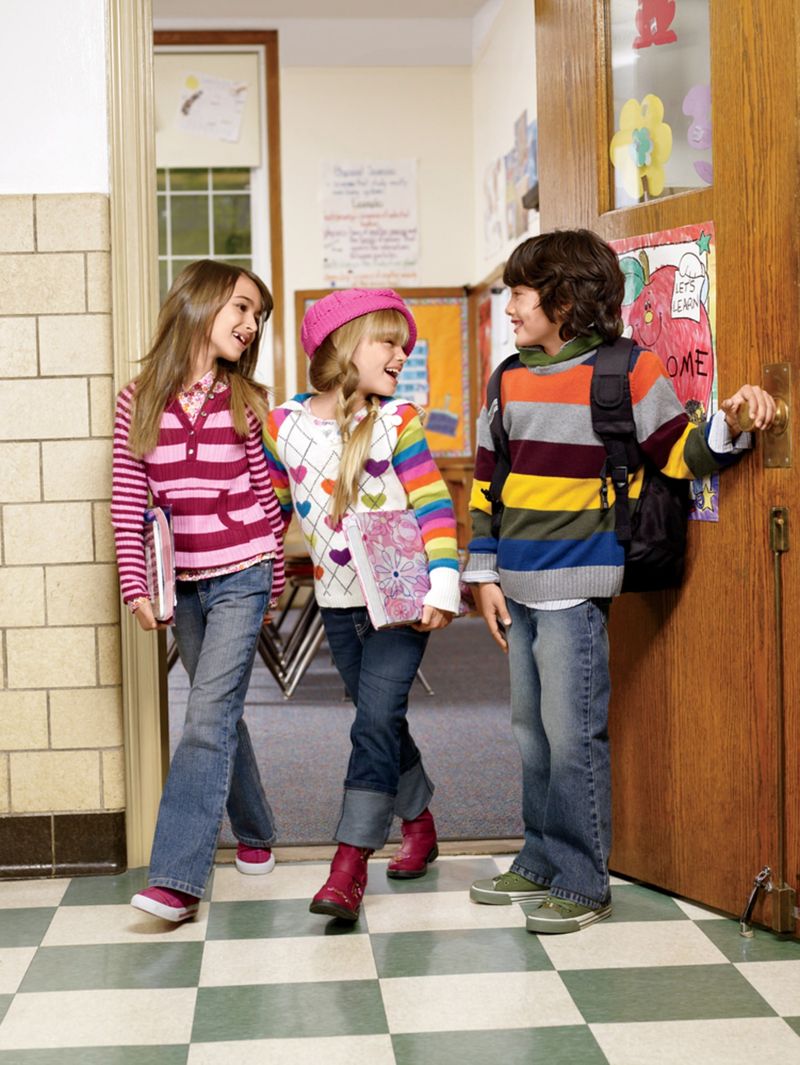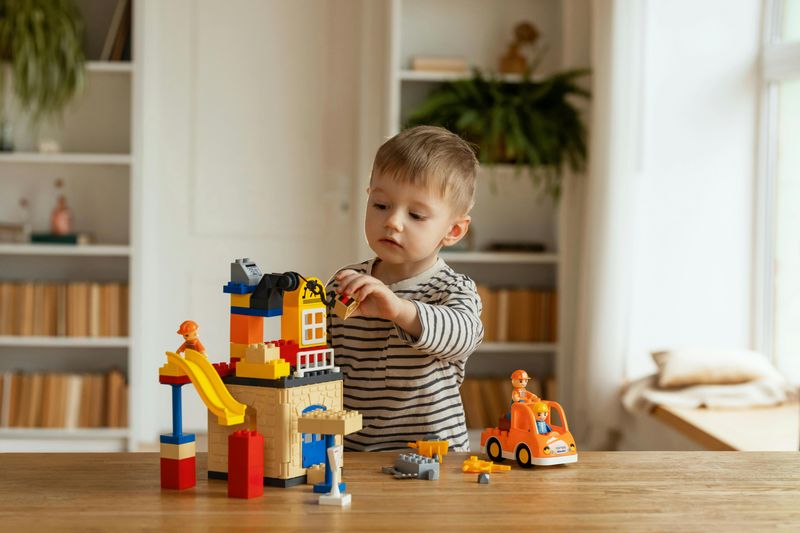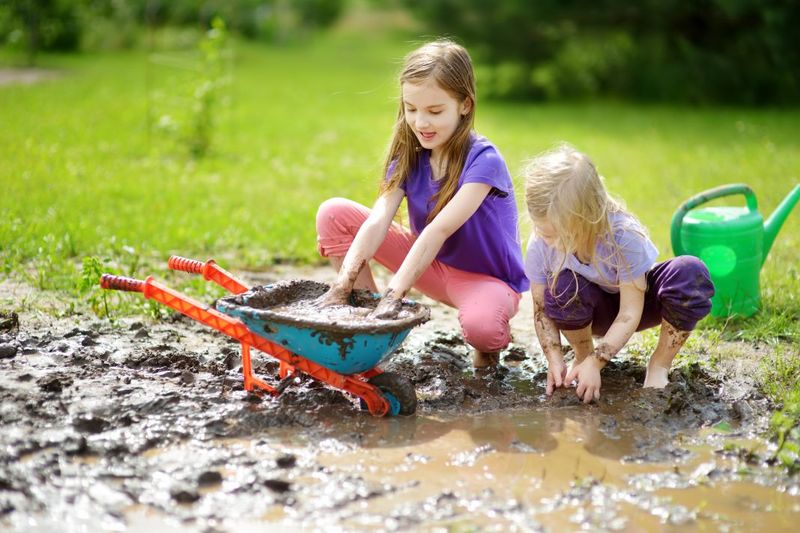13 Things That Seem Like Bad Parenting—But Aren’t

Parenting comes with countless moments of self-doubt and judgment from others. What looks like a parenting fail to onlookers might actually be a thoughtful choice based on your child’s unique needs. Parents often face criticism for decisions that, while unconventional, may benefit their children in surprising ways. Let’s explore some parenting approaches that get a bad rap but deserve a second look.
1. Letting Kids Get Bored

Many parents rush to fill every moment of their child’s day with activities and entertainment. But boredom actually sparks creativity and problem-solving skills. When kids have nothing to do, their brains start working overtime.
During these seemingly empty moments, children learn to entertain themselves and develop independence. They discover new interests and talents they might never have found in a fully scheduled life.
Research shows that boredom leads to daydreaming, which boosts imagination and mental processing. So next time your child complains about having nothing to do, resist the urge to solve their problem—you’re actually helping them grow.
2. Skipping Bath Night

Daily baths aren’t always necessary for children, despite what some might think. Dermatologists actually recommend bathing young children only 2-3 times per week unless they’re visibly dirty or sweaty.
Too much bathing strips natural oils from the skin, potentially causing dryness, irritation, and even eczema flare-ups. Children’s developing immune systems also benefit from some exposure to normal environmental microbes.
Cultural differences play a role too—many families around the world follow different bathing schedules without health consequences. As long as basic hygiene areas are cleaned regularly, giving the occasional bath a miss isn’t neglect—it might be exactly what your child’s skin needs.
3. Serving Breakfast for Dinner

Pancakes at 6 PM might raise eyebrows, but meal-swapping can be a smart parenting move. Breakfast foods often contain whole grains, protein, and fruit—nutritional powerhouses that work any time of day. For busy families, a quick scrambled egg dinner delivers more nutrition than many takeout options.
Children thrive on occasional routine breaks, and breakfast-for-dinner creates fun memories without harm. These meals typically cost less and create fewer dishes, giving parents a much-needed break.
The psychological benefit matters too. Breaking arbitrary food rules teaches kids flexibility and prevents rigid eating habits later in life. What matters most is the overall nutritional balance across days, not strict meal definitions.
4. Not Forcing ‘Please’ and ‘Thank You’

The constant prompting of “What do you say?” creates mechanical responses rather than genuine gratitude. Some thoughtful parents focus instead on modeling polite behavior themselves, knowing children naturally mimic what they see over time.
Forced politeness teaches children to perform for adult approval rather than developing authentic consideration for others. Many respectful parenting experts suggest that patience pays off—children develop true manners when they understand the reason behind them.
Cultural perspectives vary widely on verbal politeness markers. Some families prioritize actions over words, teaching children to show appreciation through helpful behaviors rather than scripted phrases. The goal is raising truly considerate humans, not just ones who recite social formulas.
5. Letting Kids Wear Mismatched Clothes

The child in superhero pajamas and rain boots at the grocery store isn’t evidence of parental neglect. Allowing unconventional outfit choices builds decision-making skills and personal identity. Children gain confidence when trusted with age-appropriate choices.
Fashion battles consume precious family energy better spent on meaningful connection. Parents who let clothing choices slide often find their children become more cooperative in areas that truly impact health and safety.
Self-expression through clothing helps children discover who they are. That mismatched ensemble represents developing independence. Unless there’s a genuine safety issue or severe weather mismatch, the child rocking two different socks is actually benefiting from a parent who understands which battles matter.
6. Allowing Messy Play

The mud-covered child with paint-splattered clothes isn’t being neglected—they’re experiencing valuable sensory learning. Messy play develops fine motor skills, scientific thinking, and sensory processing in ways that sanitized activities simply can’t match.
Brain development thrives during open-ended, texture-rich experiences. When children squish, pour, mix and explore different substances, they’re building neural connections that support later academic learning. The temporary mess creates permanent cognitive benefits.
Parents who tolerate mess often raise more creative problem-solvers. Children learn cause-effect relationships through messy experimentation. The parent who allows the flour explosion during baking or the backyard mud kitchen isn’t being lazy—they’re supporting crucial developmental milestones while teaching cleanup skills afterward.
7. Not Sharing Every Toy

Forcing immediate toy sharing can actually undermine important developmental lessons. Children need to experience ownership before they can truly understand generosity. The parent who doesn’t immediately intervene when their child clutches a favorite toy might be teaching deeper lessons about boundaries.
Taking turns differs from sharing—it respects a child’s temporary ownership while teaching patience. Many child development experts now recommend turn-taking over forced sharing. This approach helps children develop genuine generosity rather than resentful compliance.
Special comfort items like security blankets or loveys deserve protection from sharing requirements. Children learn nuance when parents distinguish between community toys and personal treasures. The thoughtful parent who says “That’s your special teddy, you don’t have to share it” is actually teaching sophisticated social boundaries.
8. Letting Kids Get Dirty

The muddy child climbing trees isn’t experiencing neglect—they’re building their immune system. Research increasingly supports the “hygiene hypothesis,” suggesting that early exposure to certain microbes helps prevent allergies and autoimmune conditions later in life.
Outdoor play in natural environments provides physical benefits beyond what structured activities offer. Children who regularly get dirty develop better balance, coordination, and risk assessment skills. They also tend to sleep better after active outdoor adventures.
Connection with nature fosters environmental awareness and scientific curiosity. The grass-stained knees and dirt-encrusted fingernails represent valuable learning that no classroom can provide. Parents who allow reasonable dirtiness aren’t being lazy—they’re supporting their child’s physical and cognitive development in profound ways.
9. Not Intervening in Every Conflict

Rushing to solve every sibling squabble or playground disagreement robs children of crucial conflict resolution skills. Parents who hang back (while monitoring for safety) allow children to practice negotiation, compromise, and emotional regulation.
Children learn important social cues when working through minor conflicts. They discover how their words impact others and develop empathy by experiencing both sides of disagreements. The parent who observes before jumping in isn’t being negligent—they’re providing a safe space for social learning.
Adult intervention can actually escalate tensions or create dependency. Children who constantly rely on adults to solve problems develop fewer coping strategies. The thoughtful parent who asks “How could you solve this problem?” instead of immediately fixing things helps build resilience for future challenges.
10. Saying ‘No’ Often

Consistent boundaries create security, not harm. Children with clear limits actually feel safer and develop better self-regulation than those with few restrictions. The parent who seems “strict” about certain rules may be providing essential structure.
Reasonable limits teach delayed gratification—a skill linked to better academic performance, healthier relationships, and greater life satisfaction. Children learn that immediate desires sometimes conflict with long-term wellbeing.
Hearing “no” prepares children for real-world disappointments in manageable doses. Parents who set appropriate boundaries raise children who understand consent, respect others’ limits, and handle frustration more effectively. Rather than being mean, the parent who calmly holds firm on important rules is teaching crucial life skills.
11. Serving Simple Meals

Social media showcases elaborate bento box lunches and themed dinners, making parents of picky eaters feel inadequate. But nutrition experts confirm that simple, consistent meals often better support healthy eating habits than Pinterest-perfect creations.
Children benefit from predictable food routines with occasional variety. The parent serving plain pasta with butter for the third time that week may be wisely reducing mealtime battles while still meeting nutritional needs across the day. Food acceptance develops gradually for many children.
Mental health matters too. Parents who prioritize family connection over culinary perfection often create healthier food attitudes. The simple sandwich served with genuine attention creates better memories than an elaborate meal accompanied by stress. Good parenting means balancing nutrition with emotional wellbeing—sometimes through wonderfully ordinary food.
12. Not Praising Every Achievement

Constant praise can actually undermine motivation and confidence. Research shows that children bombarded with “good job!” for every small action become praise-dependent and risk-averse. They may avoid challenges where success isn’t guaranteed.
Thoughtful parents often focus on effort and process rather than outcomes. “You worked hard on that puzzle” teaches more valuable lessons than “you’re so smart!” This approach builds resilience and a growth mindset.
Authentic reactions matter more than automatic praise. Children develop accurate self-assessment when adults respond honestly rather than with exaggerated enthusiasm for minor accomplishments. The parent who sometimes simply acknowledges rather than celebrating isn’t being cold—they’re helping their child develop internal motivation and realistic self-awareness.
13. Allowing Age-Appropriate Risk

The parent watching their child climb a tall playground structure isn’t being negligent—they’re supporting healthy development. Reasonable risk-taking builds physical confidence, danger assessment skills, and resilience that can’t develop through constant protection.
Children denied appropriate risks often seek bigger thrills later or develop unnecessary fears. The skinned knee today prevents the broken arm tomorrow as children learn their physical limits gradually. Parents who resist the urge to constantly caution “be careful” raise more physically capable kids.
Different children need different risk thresholds. The thoughtful parent who knows their cautious child needs encouragement to try the slide, while their daredevil needs help identifying true dangers, is practicing personalized safety teaching. This balanced approach prepares children for independent judgment better than blanket protection.

Comments
Loading…